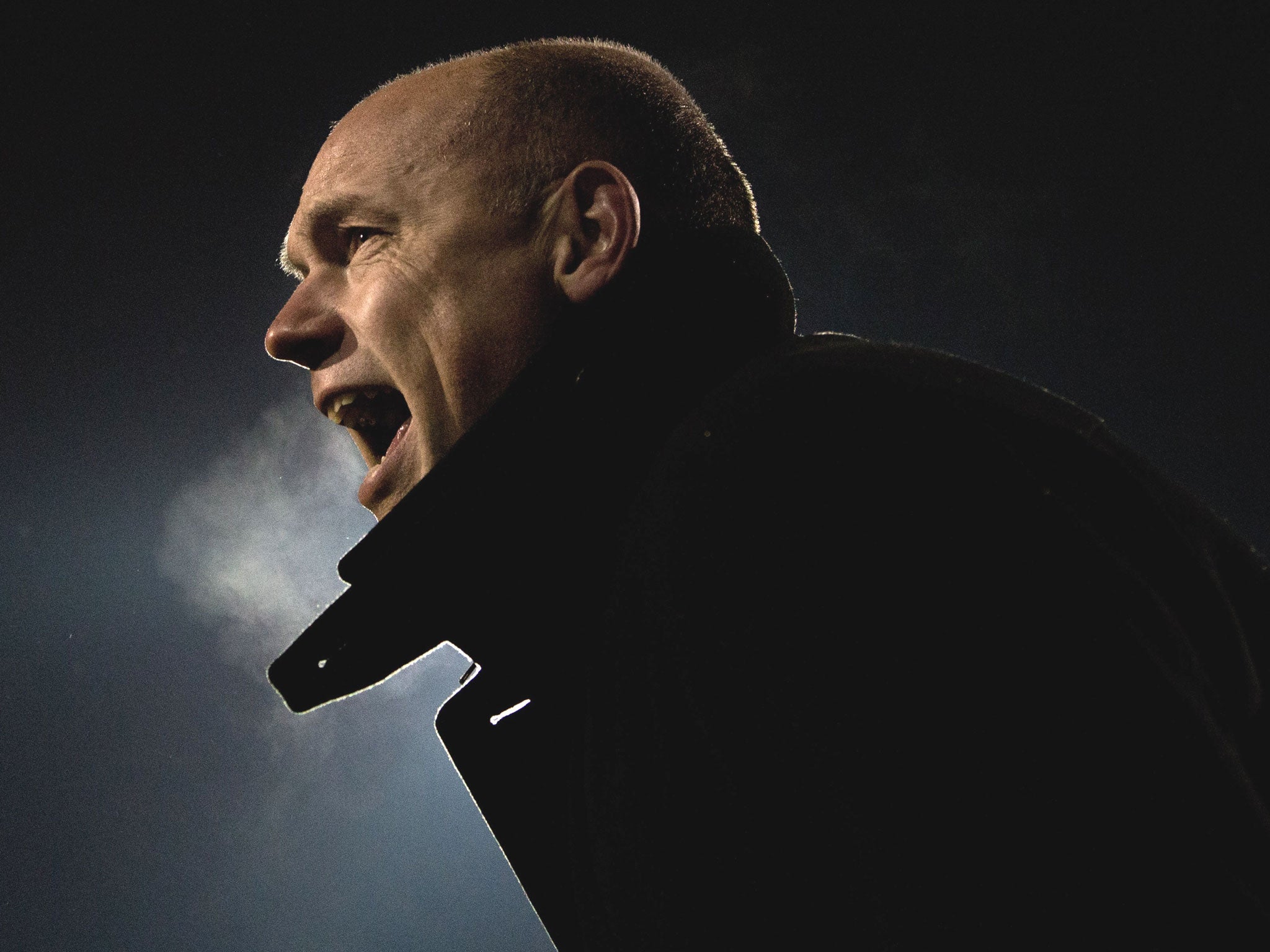Michael Calvin: Bees' taste of honey sweetens sour taste of modern football
The Last Word: Brentford and a professional gambler are out to show that maybe there is life in the old game yet

It is easy to patronise Brentford as plucky paupers warding off a wasting disease with a spoonful of gruel. The contrasts with Chelsea, today's opponents at Griffin Park, are so glaring, topical and meaningful they invite whimsy and waffle.
Sentimentalists will dwell on superficialities, and promote the FA Cup tie as a morality tale, featuring doughty journeymen and haughty millionaires. It can be condensed into clichés: innocence and cynicism, blind faith and bloated egos. It is a meeting between The Waltons and The Unforgiven.
Chelsea will probably win, and everyone is likely to miss the point. This has been a good week for football, despite the shallow, silly charades of Ballboygate. The underdogs, Bradford and Swansea, have been let off the leash and will be forgiven for marking their territory on every lamppost along Wembley Way.
Brentford also deserve to intrude on the national consciousness. Let's park preconceptions and concentrate on the facts. Brentford are a progressive club despite their humble status. They are sustained by good people and important values. They have grown under the radar. Today's game, one of their most important since a win at Peterborough secured promotion from the old Third Division in 1992, is a reward for incremental progress.
The idiosyncrasies and inadequacies of any small club mask Brentford's potential. He will hate me for saying this, but that is down to Matthew Benham, an owner who bucks the trend of tangerine-hued self-publicists or imported control freaks.
He is one of the world's most successful professional gamblers but, first and foremost, is a fan. He guards his anonymity so jealously he is able to watch from the terraces with his son unmolested. He discovered Brentford at the age of 10. His definitive memory involves bunking off school and taking a football special to a game at Nottingham Forest when Brian Clough was in his pomp.
When the club resorted to taking bucket collections to ease cashflow problems, he took on outstanding loans approaching £10 million. Within 10 days of assuming ownership, he bought the land for a new stadium. He has also invested in a youth system which is too good for its own good, because it risks being asset- stripped by lazy, cash-rich clubs given carte blanche by recruitment rules written by the Premier League, for the Premier League.
That sums up what football has become at the highest level: complacent, self-serving and distanced from reality. Smaller clubs enshrine what football has the potential to be: aspirational, socially aware and in tune with the communities they represent. Boys shake the hand of any visitor to Brentford's academy as a mark of respect. Coaches use futsal, a game played on a hard-court surface with a smaller, heavier ball to encourage improvisation, creativity and technique.
Excellence flourishes under enlightened tutors. Shaun O'Connor discovered Jack Wilshere. Miguel Rios, a former City business analyst, worked in Barcelona's youth system. Ose Aibangee and Mark Warburton were key figures in Watford's ground-breaking academy. All have turned down approaches by Premier League clubs in recent months.
Unfashionable clubs have a greater sense of identity. Millwall's greatest achievement this weekend may not be the defeat of Aston Villa, but the success they have had in protesting against the closure of the A&E and Maternity Departments at a local hospital.
Players visited the wards and raised awareness by wearing campaign T-shirts before Friday's game. Dan Shittu, their captain, and Archbishop Desmond Tutu, another patron of the cause, may very well be sport's most unlikely double act.
Maybe the old game is worth saving, and celebrating.
Murray confronts mediocre mindset
As breakfast buffets go, the Australian Open final between Andy Murray and Novak Djokovic will be sumptuous, sustained and deeply satisfying. Whatever the outcome, the tone of our sporting year will be set. Murray's claim to be Britain's most compelling athlete can no longer be disputed.
All sports require rivalries to give them drama, pace and perspective. The friendship between the Scot and the Serb may be on hold, but the similarities between them are captivating.
Murray (below) has taken a little while longer to mature, but now possesses the inner belief of a Grand Slam champion. He accepts, even relishes, the pain of self-determination.
The US Open title merely encouraged him to purge himself in a daily series of six-hour workouts involving technical training, sprint drills and circuit sessions.
Djokovic sets the standard for mental strength and physical durability. He, too, is a slave to his trade. The cadence of a five-set marathon inspires him.
Melbourne will offer an insight into the identity of the world's top tennis player. It may surprise and delight those of us who despaired of the middle-class mediocrity enshrined by the LTA, the worst-run body in British sport.
No cover-up
Cycling enters the dock in Madrid tomorrow. So does Dr Eufemiano Fuentes, accused of overseeing large-scale blood doping. Only 34 of his 200 acknowledged clients are cyclists, so doubts will linger. Tennis and football are implicated. There must be no cover-up.
Subscribe to Independent Premium to bookmark this article
Want to bookmark your favourite articles and stories to read or reference later? Start your Independent Premium subscription today.

Join our commenting forum
Join thought-provoking conversations, follow other Independent readers and see their replies